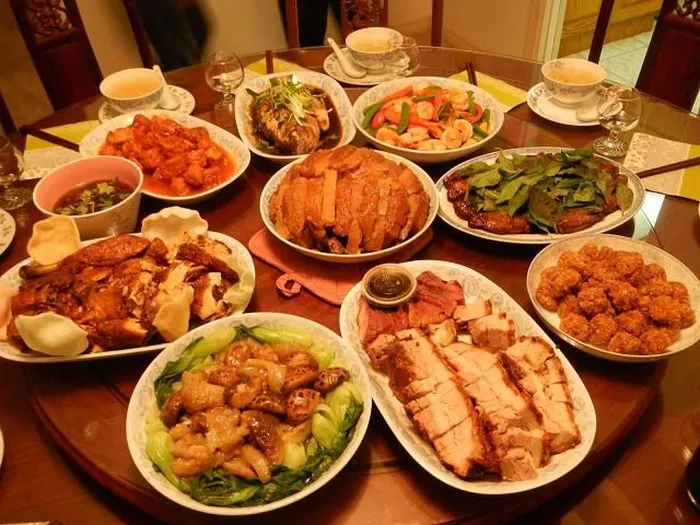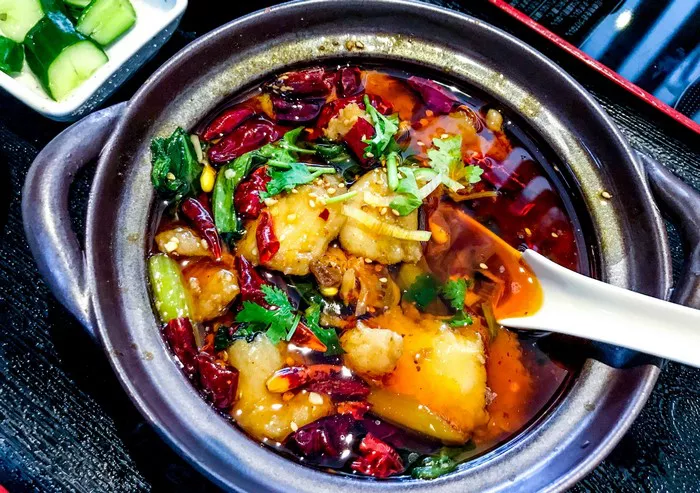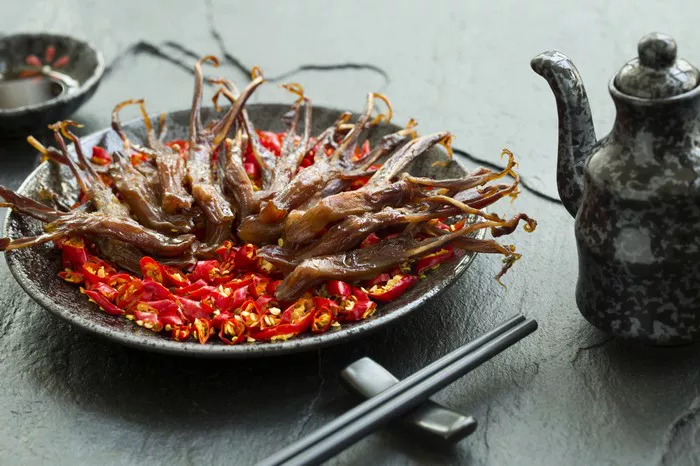Christmas, a festive holiday celebrated by millions around the world, brings together family, friends, and a bountiful array of culinary delights. While traditional Western dishes like roast turkey, ham, and plum pudding dominate many Christmas tables, the global nature of this holiday has led to a diverse range of culinary adaptations. In China, a country with a rich culinary history, Christmas is celebrated by blending traditional Chinese dishes with Western influences, creating a unique and delicious fusion of flavors.
The Rise of Christmas in China
Christmas was not traditionally celebrated in China due to its primarily Christian origins. However, over the past few decades, the holiday has gained popularity in China, albeit as a more secular celebration focused on decorations, gift-giving, and festive gatherings. Shopping malls, restaurants, and public spaces are adorned with glittering lights and decorations, creating a captivating atmosphere that draws people into the Christmas spirit. With the increased exposure to Western culture and the desire for novelty, many Chinese people have embraced this holiday as an opportunity to indulge in festive culinary experiences.
Fusion of Festive Flavors
1. Hot Pot Extravaganza: A Winter Delight
In many parts of China, winter is synonymous with hot pot, a communal dining experience where diners cook a variety of ingredients in a simmering pot of broth at the center of the table. During Christmas, this tradition takes on a festive twist as families and friends gather around steaming pots filled with a colorful array of meats, seafood, vegetables, and noodles. This culinary adventure is not only about savoring delicious ingredients but also about the joyful bonding experience that comes with sharing a meal. The hot pot’s warming nature perfectly complements the chilly winter weather and provides a unique way to celebrate the holiday.
2. Peking Duck: A Luxurious Indulgence
Peking duck, a renowned Chinese dish with centuries of history, is another favorite that often graces Chinese Christmas tables. The dish features perfectly roasted duck with crisp skin and succulent meat, served with thin pancakes, scallions, and hoisin sauce. While traditionally enjoyed in China during various celebrations, its lavish presentation and flavorful profile make it a worthy centerpiece for a Christmas feast. The indulgence of Peking duck aligns with the festive spirit of the holiday, making it a popular choice among those looking to elevate their Christmas dining experience.
3. Western-Inspired Treats: Embracing Globalization
As Christmas continues to gain traction in China, some Western culinary elements have found their way onto Chinese Christmas menus. Dishes like roasted chicken, creamy mashed potatoes, and even the occasional fruitcake have been embraced by those seeking to infuse their celebrations with international flavors. These adaptations are often prepared with a Chinese twist, incorporating local ingredients and culinary techniques to create a fusion of tastes that cater to both Western and Chinese palates.
4. Dim Sum Delights: Small Bites, Big Flavors
Dim sum, a style of Chinese cuisine that features small, flavorful dishes often served in bamboo steamers, is also making its mark on Chinese Christmas celebrations. Families gather to share a variety of dim sum offerings, from delicate dumplings to savory buns filled with various ingredients. The bite-sized nature of dim sum encourages communal eating, allowing everyone to sample a wide range of flavors. By incorporating dim sum into their Christmas menus, Chinese families create a harmonious blend of tradition and festivity.
5. Sweet Treats and Desserts: Capturing the Christmas Spirit
No Christmas celebration is complete without indulging in sweet treats and desserts, and Chinese festivities are no exception. While traditional Chinese desserts like rice balls and sweet soups hold their ground, Western-inspired desserts such as fruit tarts, chocolate cakes, and gingerbread cookies are finding their way onto Chinese Christmas tables. These desserts, often adorned with festive decorations and creative designs, offer a delightful conclusion to the holiday meal, leaving a lasting impression on both the taste buds and the heart.
Cultural Significance
1. Family and Togetherness
In China, as in many cultures, Christmas is a time to strengthen family bonds and enjoy the company of loved ones. Sharing a meal together is a fundamental aspect of this celebration, and the act of preparing and enjoying food becomes a way to express love, gratitude, and unity. Whether it’s the collaborative nature of hot pot or the sharing of dim sum, food plays a pivotal role in fostering connections and creating lasting memories.
2. Cultural Integration
The Chinese approach to celebrating Christmas reflects the country’s unique blend of tradition and modernity. By incorporating both Chinese and Western culinary elements, Chinese Christmas menus showcase the nation’s openness to embracing global influences while retaining their cultural roots. This harmonious fusion of flavors and traditions mirrors China’s ongoing journey of cultural integration and its ability to adapt to changing times.
3. Culinary Creativity
Chinese Christmas cuisine exemplifies culinary creativity at its finest. Chefs and home cooks alike experiment with diverse ingredients, cooking techniques, and presentation styles to craft dishes that captivate the senses. This creativity is not limited to the dishes themselves but extends to the way they are plated and served, enhancing the overall dining experience and making Christmas celebrations truly special.
Conclusion
In China, the celebration of Christmas is a fascinating journey of cultural fusion and culinary exploration. As this festive holiday continues to weave itself into the fabric of Chinese society, the food served during Christmas celebrations evolves to reflect the country’s unique identity. By blending traditional Chinese dishes with Western influences, Chinese families create a culinary tapestry that resonates with both the flavors of the past and the spirit of the present. Whether enjoying a steamy hot pot, savoring the elegance of Peking duck, or relishing the diversity of dim sum, Chinese Christmas cuisine stands as a testament to the power of food to bridge cultures, bring people together, and make cherished memories.


























